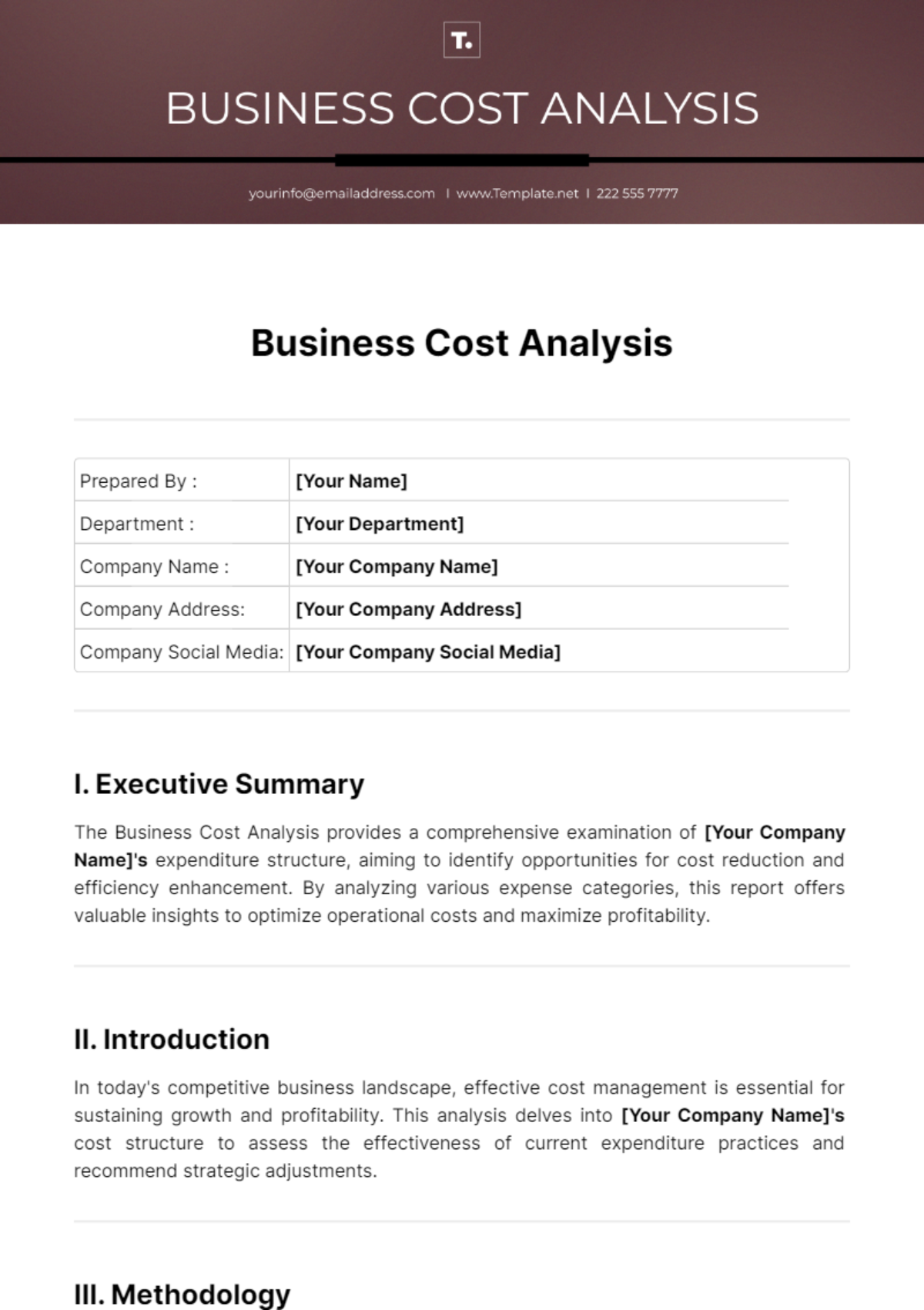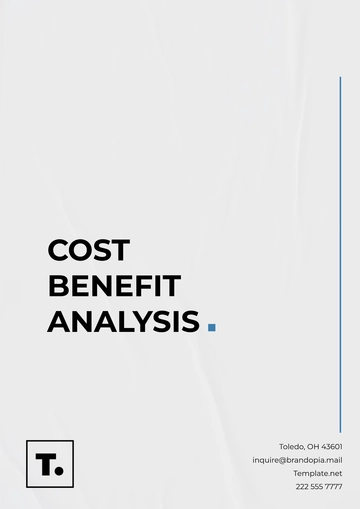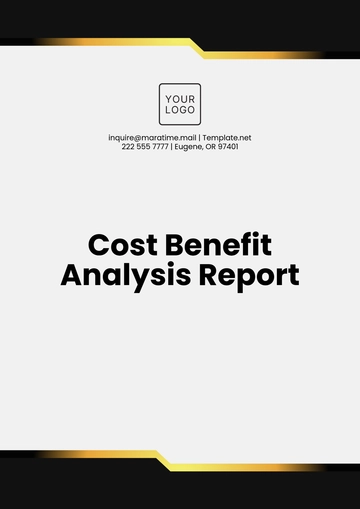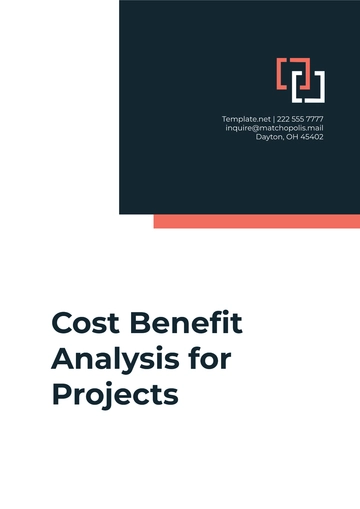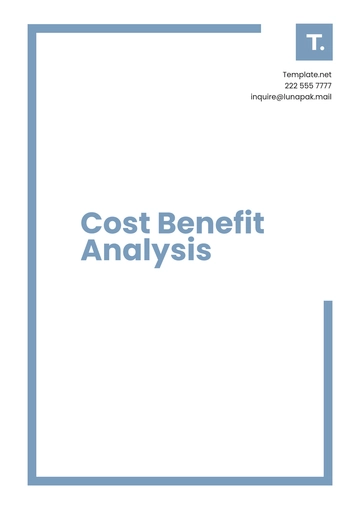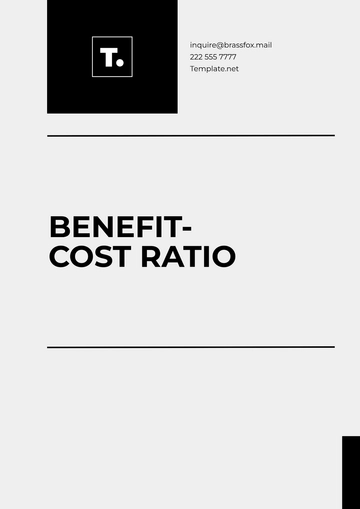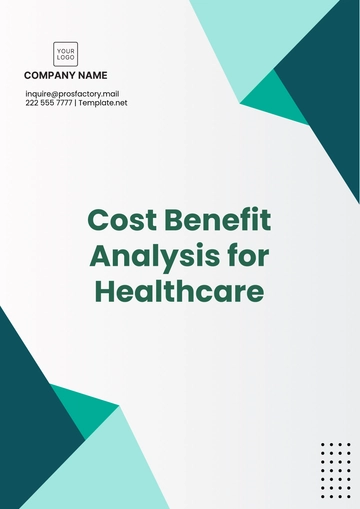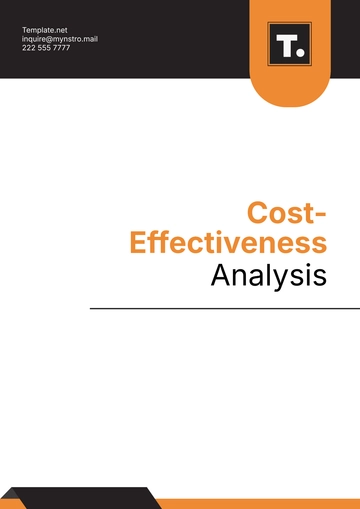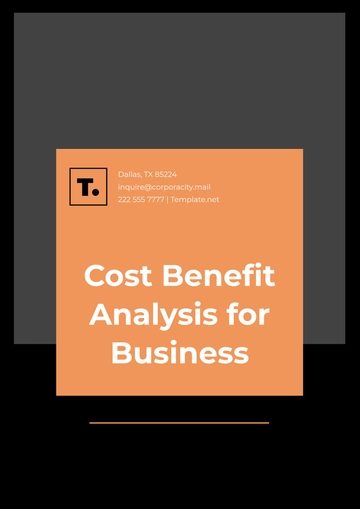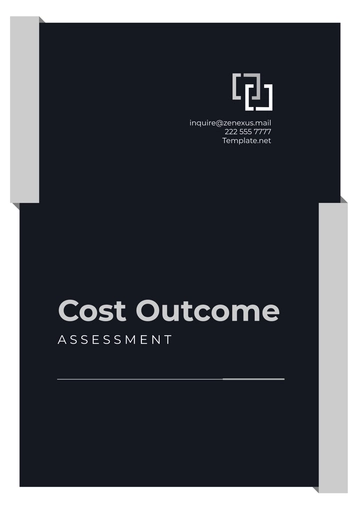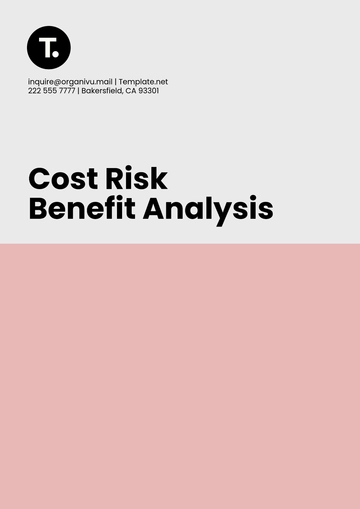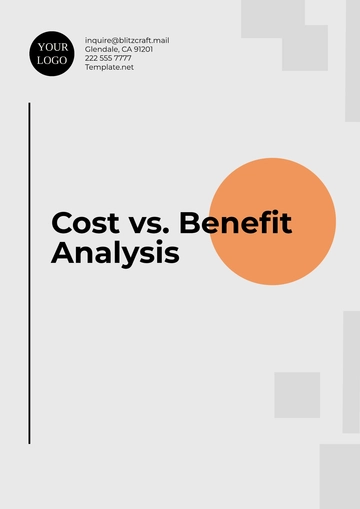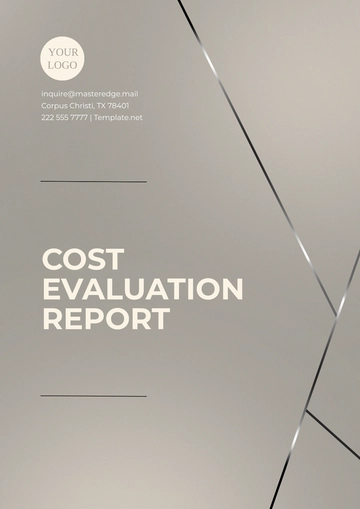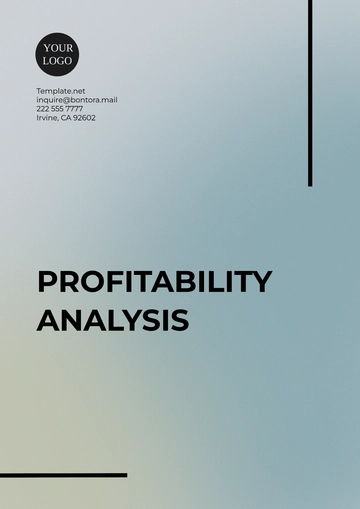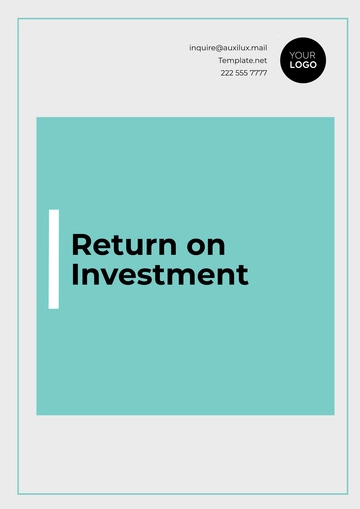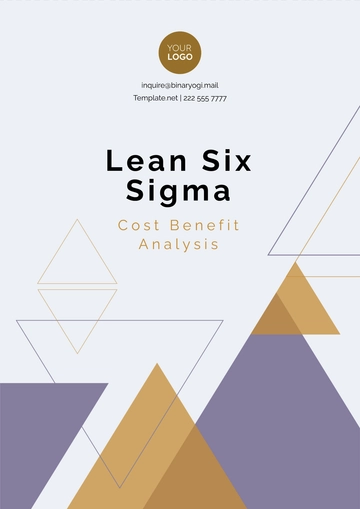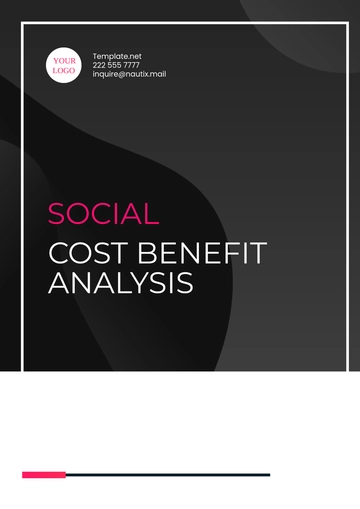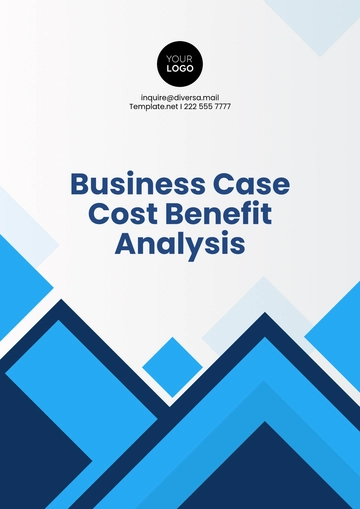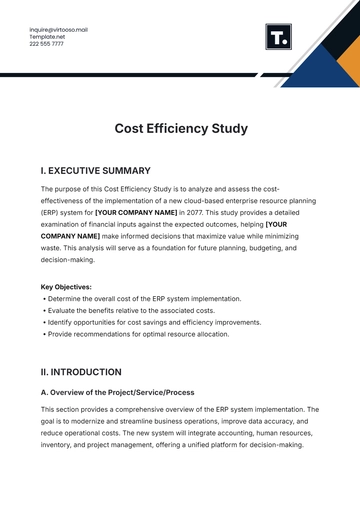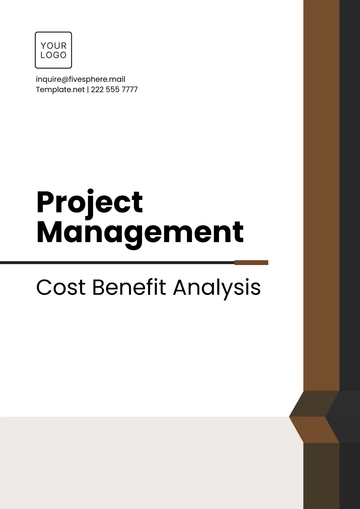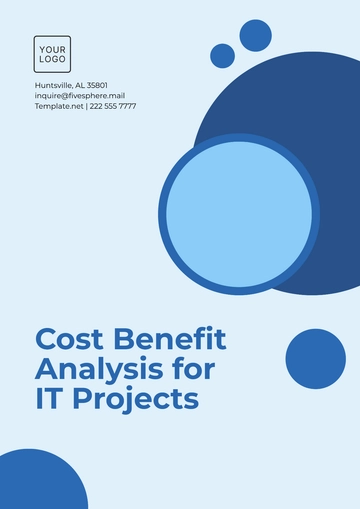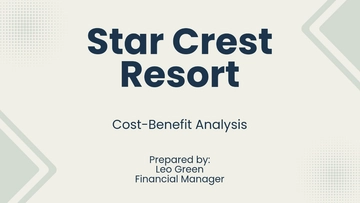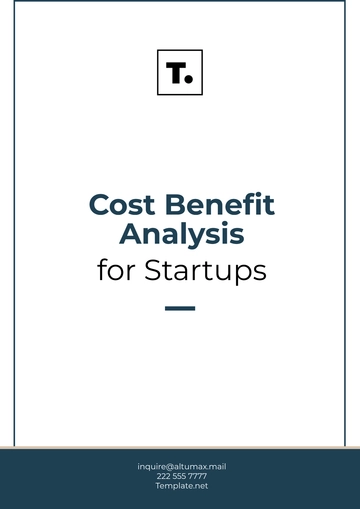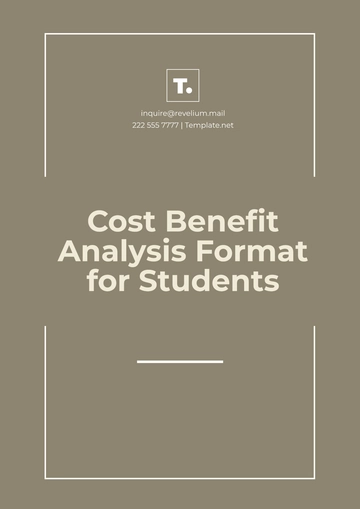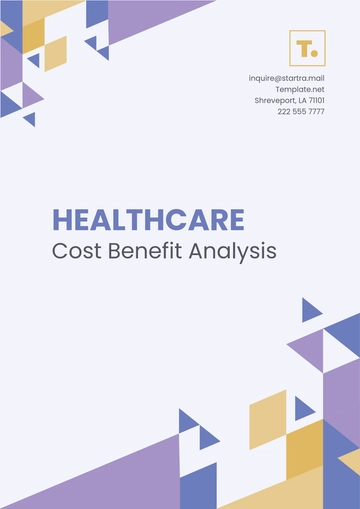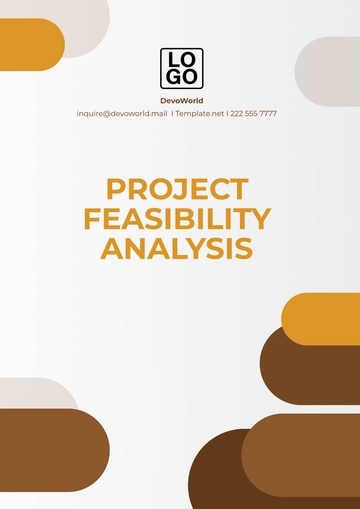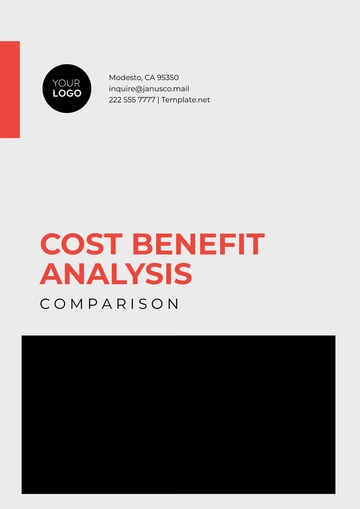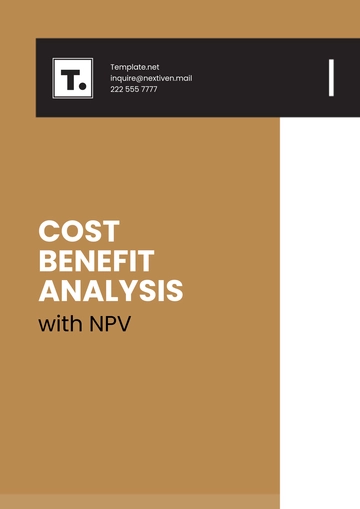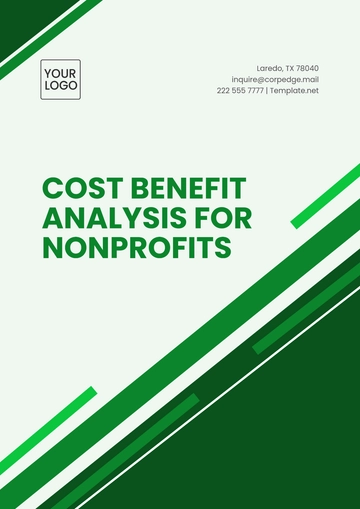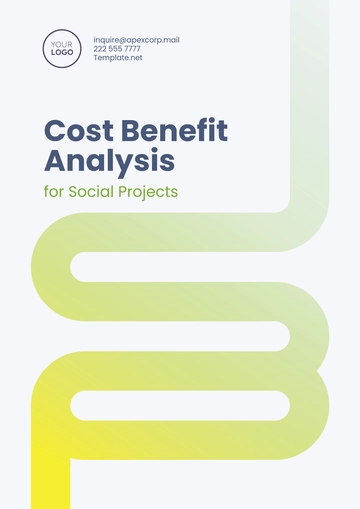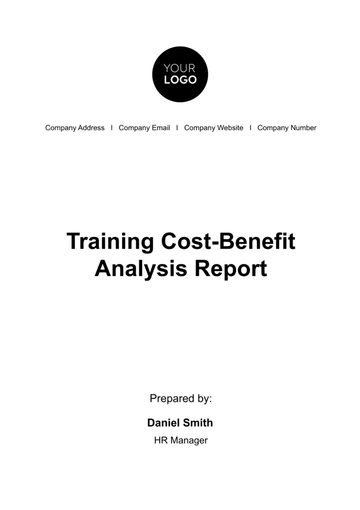Business Cost Analysis
Prepared By : | [Your Name] |
Department : | [Your Department] |
Company Name : | [Your Company Name] |
Company Address: | [Your Company Address] |
Company Social Media: | [Your Company Social Media] |
I. Executive Summary
The Business Cost Analysis provides a comprehensive examination of [Your Company Name]'s expenditure structure, aiming to identify opportunities for cost reduction and efficiency enhancement. By analyzing various expense categories, this report offers valuable insights to optimize operational costs and maximize profitability.
II. Introduction
In today's competitive business landscape, effective cost management is essential for sustaining growth and profitability. This analysis delves into [Your Company Name]'s cost structure to assess the effectiveness of current expenditure practices and recommend strategic adjustments.
III. Methodology
A. Data Collection
Data sources: Financial records, invoices, payroll reports, and expense tracking systems.
Methodology: Utilized a combination of quantitative analysis and qualitative assessments to gather and interpret cost-related information.
B. Analysis Techniques
Employed cost-volume-profit (CVP) analysis, variance analysis, and benchmarking against industry standards.
Leveraged advanced cost analysis software to facilitate data processing and visualization.
IV. Findings
A. Overall Expenses
Overall Expenses for the Fiscal Year Ending 2050
Expense Category | Amount ($) | Percentage of Total Expenses |
|---|
Labor Costs | $3,500,000 | 35% |
Material Costs | $2,500,000 | 25% |
Overhead Costs | $3,000,000 | 30% |
Total Expenses | $10,000,000 | 100% |
B. Cost Breakdown
Expense Category | Amount ($) | Percentage of Total Expenses | Reason for Increase |
|---|
Labor Costs | $3,500,000 | 35% | Increase in employee wages and benefits. |
Material Costs | $2,500,000 | 25% | Higher procurement costs due to supply chain disruptions. |
Overhead Costs | $3,000,000 | 30% | Rise in administrative expenses for expansion projects. |
V. Conclusion
The analysis reveals [Your Company Name]'s current expenditure patterns and highlights areas for improvement. By understanding the underlying cost drivers, [Your Company Name] can implement targeted strategies to optimize resource allocation and enhance financial performance.
VI. Recommendations
A. Cost Reduction Strategies
Negotiate vendor contracts to secure favorable pricing terms.
Implement lean manufacturing principles to minimize waste and enhance operational efficiency.
Explore outsourcing opportunities for non-core functions to reduce overhead costs.
B. Efficiency Enhancement
Invest in automation technologies to streamline repetitive tasks and improve productivity.
Conduct regular performance reviews to identify underperforming departments and implement corrective measures.
Offer employee training programs to enhance skills and increase efficiency across the organization.
Analysis Templates @ Template.net
